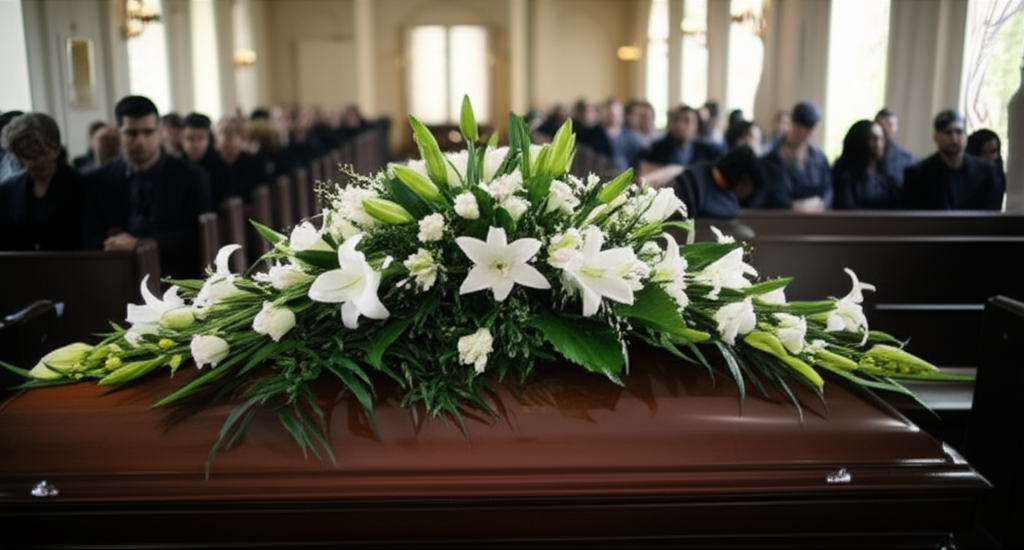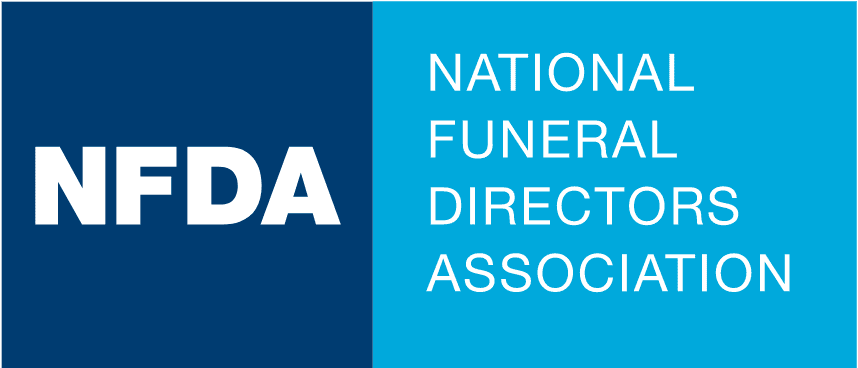Pre-Planning Your Cremation: A Comprehensive Guide for Massachusetts Families
Why Pre-Planning Your Cremation in Massachusetts is a Smart Decision for Your Family
Making decisions about your final arrangements is a profound act of love and consideration for your family. By choosing to plan ahead , you provide a clear roadmap that ensures your wishes are honored, while simultaneously lifting a significant weight from your loved ones' shoulders during a time of grief. Pre-planning is about taking control, making thoughtful choices without pressure, and giving your family the gift of peace of mind.
What Are the Key Benefits of Pre-Planning End-of-Life Services in MA?
Pre-planning your cremation offers numerous advantages. It allows you to make informed decisions about every detail, from the type of service to the final disposition of your remains, ensuring the arrangements truly reflect your life and values. Financially, it allows you to lock in today's prices, protecting your family from the effects of inflation on funeral costs. Most importantly, it spares your family from the stress of making difficult decisions under emotional duress, preventing potential disagreements and uncertainty.
How Pre-Arrangement Eases the Emotional and Financial Burden on Loved Ones
When a death occurs, family members are often faced with over 100 decisions that must be made within the first 24 to 48 hours. This is a period of intense grief and vulnerability. A pre-arranged plan eliminates this burden. Your loved ones won't have to guess what you would have wanted or worry about how to pay for the services. They can focus on supporting one another and beginning the healing process, secure in the knowledge that they are fulfilling your final wishes perfectly.
Ensuring Your Final Wishes Are Honored Through a Massachusetts Pre-Need Plan
A Massachusetts pre-need plan is a legally sound way to document and fund your arrangements. By working with a compassionate and experienced funeral home, you can formalize every detail. This written plan serves as an unambiguous guide for your family and the funeral director, guaranteeing that your specific choices regarding services, memorialization, and other personal touches are carried out exactly as you envisioned.

Understanding Key Massachusetts Cremation Laws and Legal Requirements
The Commonwealth of Massachusetts has specific regulations in place to ensure every cremation is handled with dignity, respect, and legal precision. Navigating these requirements is a standard part of the process, and a knowledgeable funeral director will manage these details on your family's behalf.
The Mandatory 48-Hour Waiting Period for Cremation in MA Explained
Massachusetts law mandates a 48-hour waiting period from the time of death before a cremation can take place. This rule is in place to ensure that there are no outstanding questions regarding the circumstances of the death and that all legal and administrative procedures are properly completed without haste.
Why Medical Examiner Authorization is Required Before Any Cremation
Before any cremation can proceed, a state-appointed Medical Examiner must review the case and provide authorization. This is a crucial step to confirm the cause of death and rule out any civil or criminal liability. The forensic investigator's authorization is a standard, non-invasive review that is typically coordinated by the funeral home at the crematory.
How to Provide Legal Written Authorization for Cremation in Massachusetts
Written authorization is a legal prerequisite for cremation. This authority is typically granted by the legal next of kin in a specific order (e.g., spouse, adult children, parents). To ensure your own wishes are fulfilled, especially if family dynamics are complex, you can complete a self-authorization form during the pre-planning process to be kept on file with your chosen funeral home.
Understanding Regulations for Cremation Containers vs. Traditional Caskets
State law does not require a traditional casket for cremation. Instead, regulations mandate a "suitable container," which is a rigid, combustible container designed to hold the body. These can be made from materials like fiberboard, pressed wood, or strong cardboard. Funeral homes must inform you of this option, which is a dignified and more affordable alternative to a casket.
Why Massachusetts Funeral Homes Don't Operate Their Own Crematories
In Massachusetts, funeral homes are generally prohibited from owning and operating their own crematories. Crematories are typically located within cemeteries. This means the process involves two professional entities: the funeral home, which manages all family arrangements and transportation, and the crematory, which performs the cremation itself. A trusted funeral provider will have a longstanding relationship with a reputable local crematory.
A Step-by-Step Checklist for Pre-Planning Your Cremation in MA
Taking the time to pre-plan your cremation can be a straightforward and empowering process. This checklist breaks it down into manageable steps.
Step 1: Educating Yourself and Discussing Your Wishes with Family
Begin by learning about the wide range of cremation services available. Cremation offers immense flexibility, from simple, private arrangements to elaborate celebrations of life. Once you have an idea of your preferences, have an open and honest conversation with your family. Sharing your wishes can prevent future confusion and ensure they are prepared to honor your choices.
Step 2: How to Research and Choose a Reputable Cremation Provider in Massachusetts
Selecting the right funeral home is crucial. Look for a provider with deep roots in the community, a reputation for compassionate care, and a commitment to transparency. The team at Oliveira Funeral Homes is dedicated to guiding families through this process with dignity and respect, ensuring all your questions are answered and you feel comfortable with your decisions. Review their services overview to understand the full spectrum of care they provide.
Step 3: Making Critical Service Decisions for Your Memorial or Celebration of Life
This is where you can personalize your arrangements. Do you envision a gathering before the cremation, perhaps with a viewing? Or would you prefer a memorial service after the cremation, with the urn present? You might also choose a less formal celebration of life or no service at all. Consider elements like music, readings, and displays of photographs that reflect your personality. While cremation is a popular choice, understanding traditional services can help you decide what elements, if any, you'd like to incorporate.
Step 4: Planning for the Final Disposition of Ashes According to MA Law
Think about what you would like to happen with your cremated remains. Massachusetts law allows for flexibility. Options include burial in a family plot, placement in a cemetery niche (inurnment), scattering on private land (with permission) or at sea, or being kept at home in a decorative urn. There are also unique options like incorporating ashes into keepsake jewelry or art.
Step 5: Addressing the Legal and Financial Arrangements for Your Pre-Need Plan
The next step is to formalize your plan. This involves creating a pre-need contract that outlines your service choices and financial arrangements. In Massachusetts, pre-paid funds are legally protected and must be held in a trust or insurance policy, not by the funeral home itself. This ensures your investment is secure. The best way to begin is to explore how to plan ahead with a trusted professional who can explain all your options clearly.
Step 6: Gathering and Documenting Personal Information for Your Death Certificate and Obituary
Compile essential personal information needed for a death certificate, such as your full name, date and place of birth, parents' names (including mother's maiden name), and Social Security number. You can also write your own obituary or jot down key details, affiliations, and accomplishments. For veterans, it's important to gather military service records (like a DD-214) to ensure access to deserved honors. Oliveira Funeral Homes is proud to assist families in arranging these special veterans' services.
How Much Does Pre-Planned Cremation Cost in Massachusetts? A Detailed Breakdown
Understanding the costs associated with cremation allows you to plan effectively and make choices that align with your budget. Prices can vary significantly based on the level of service you select.
Comparing the Average Cost of Direct Cremation vs. a Full-Service Cremation Funeral
In Massachusetts, cremation costs generally range from around $1,500 to over $7,000.
- Direct Cremation: This is the most affordable option, typically costing between $1,500 and $3,200. It includes the basic services of a funeral director, transportation, paperwork, and the cremation itself, without any viewing or memorial service.
- Full-Service Cremation Funeral: This option is closer to a traditional funeral, with an average cost of around $7,100. It may include embalming, a viewing or wake, a formal service before the cremation, and a more elaborate cremation casket.
What's Typically Included in an Affordable Direct Cremation Package in MA?
A basic direct cremation package generally covers the essential services required. This includes the professional services of the funeral staff, transfer of the deceased from the place of death, sheltering the remains, obtaining necessary permits and authorizations, a basic alternative container for cremation, the crematory fee, and the return of the cremated remains in a temporary container.
How Pre-Planning Can Lock in Today's Prices and Protect Against Inflation
One of the most significant financial benefits of pre-planning and pre-funding your cremation is the ability to pay for tomorrow's services at today's prices. By funding your plan through a trust or insurance policy, you guarantee the cost of the selected services, so your family will not have to face an increased financial burden in the future due to inflation.
Identifying Potential Hidden Fees and Third-Party Charges in Cremation Services
Transparency is key when discussing costs. Reputable funeral homes provide a clear, itemized list of all charges. Be sure to ask about third-party fees, also known as cash advance items. These are costs the funeral home pays on your behalf, such as crematory fees, certified copies of the death certificate, medical examiner fees, and obituary notices. A trustworthy provider will clearly distinguish their service charges from these outside costs.
Is Financial Assistance Available for Low-Income Massachusetts Residents?
Yes, for eligible low-income residents, the Massachusetts Department of Transitional Assistance (DTA) may provide up to $1,100 for funeral expenses. There are strict eligibility requirements and a cap on the total funeral cost, so it's important to discuss this option with a funeral director who can provide guidance on the application process.
Navigating Pre-Need Funeral Arrangements and Contracts in Massachusetts
Massachusetts has robust laws to protect consumers who choose to pre-arrange and pre-pay for funeral services. Understanding how these contracts work provides confidence that your plans are secure.
What is a Pre-Need Funeral Contract and How Does it Work in MA?
A pre-need funeral contract is a legal agreement where you select and pay for funeral goods and services in advance. In Massachusetts, only licensed funeral directors can help you establish one. The contract details your specific wishes and locks in the price for the items you select. The funds are then placed with a third-party financial institution for safekeeping until they are needed.
Revocable vs. Irrevocable Contracts: Which is Right for Your Situation?
Pre-need contracts come in two primary forms:
- Revocable Contract: This type of contract offers flexibility. You can change your mind at any time and, in most cases, receive a refund of your principal investment and interest.
- Irrevocable Contract: This contract generally cannot be canceled after an initial 10-day "cooling-off" period. It is primarily used by individuals who need to "spend down" assets to become eligible for Medicaid benefits.
How Pre-Paid Cremation Plans in MA Are Funded and Protected by Law
State law is very clear: a funeral home cannot directly hold your pre-paid funds. Payments must be made directly to a Massachusetts bank to be held in a trust or to an insurance company for a pre-need insurance policy or annuity. This ensures your money is safe, secure, and regulated, earning interest until the contract is fulfilled.
The Importance of a "Buyer's Guide to Pre-Need Funeral Arrangements"
Before you sign any contract, a Massachusetts funeral director is required by law to provide you with a "Buyer's Guide to Pre-Need Funeral Arrangements." This document clearly explains your rights, the different types of contracts, funding mechanisms, and cancellation policies, empowering you to make a fully informed decision.
How Irrevocable Funeral Trusts Can Affect Massachusetts Medicaid Eligibility
For individuals applying for Medicaid (MassHealth) to cover long-term care costs, an irrevocable funeral trust is an important estate planning tool. The funds placed in this trust are not considered a countable asset by Medicaid, allowing you to set aside money for your funeral expenses without impacting your eligibility for benefits.
Using a Payable-on-Death (POD) Account as an Alternative to a Pre-Paid Plan
An alternative to a formal pre-need contract is a Payable-on-Death (POD) account, sometimes called a Totten Trust. You can set up this type of bank account and name a beneficiary (such as a trusted family member) who will gain access to the funds upon your death to pay for funeral expenses. This method allows you to retain full control of your money, but it does not lock in the price of the funeral services.
What Are Your Options for the Final Disposition of Ashes in Massachusetts?
After cremation, the final placement of the cremated remains is a deeply personal decision. Massachusetts law provides families with a wide array of choices.
Understanding Massachusetts State Law on Scattering Cremated Remains
The Massachusetts Department of Public Health places no legal restrictions on the disposition of ashes. This means you have the freedom to scatter them on private land with the owner's permission. While scattering is permitted, you must adhere to laws prohibiting trespassing on private property or posted public lands.
Official EPA Guidelines for Scattering Ashes at Sea Off the Massachusetts Coast
For those with a connection to the ocean, scattering at sea is a popular option. The U.S. Environmental Protection Agency (EPA) governs this practice under the Clean Water Act. The guidelines require that scattering take place at least three nautical miles from land. The EPA must also be notified in writing within 30 days of the scattering.
Choosing Between Burial, Inurnment in a Niche, or Keeping Ashes at Home
Many families choose more traditional placements. Cremated remains can be buried in the ground in a cemetery plot, often in a smaller urn plot or alongside a previously buried family member. Inurnment involves placing the urn in an above-ground structure at a cemetery called a columbarium niche. Many people also find comfort in keeping their loved one's remains at home in a special urn.
Exploring Unique Memorial Options like Keepsake Jewelry and Memorial Art
Modern memorialization offers creative ways to keep a loved one close. A small portion of the cremated remains can be incorporated into beautiful glass art, diamonds, or keepsake jewelry like pendants and rings. These options allow multiple family members to have a tangible and personal remembrance.
Know Your Rights: Consumer Protection for Funeral and Cremation Planning in MA
Both federal and state laws are in place to protect you and your family during the funeral planning process, ensuring fairness, transparency, and dignity.
Key Protections Your Family Has Under the Federal Trade Commission's (FTC) Funeral Rule
The FTC's Funeral Rule grants you specific rights. These include the right to receive pricing information over the phone, the right to get a written, itemized price list (the GPL), and the right to choose only the goods and services you want. It also states that you can provide your own casket or urn without being charged an extra fee by the funeral home.
The Role of the Massachusetts Board of Registration in Embalming and Funeral Directing
This state board is responsible for licensing funeral professionals and facilities in Massachusetts. They set the standards for practice and ensure compliance with all health and safety regulations. The Board also serves as a resource for consumers and is the agency where a complaint can be filed if you encounter issues with a provider.
Your Right to a General Price List (GPL) When Comparing Cremation Costs
When you inquire about services in person, a funeral home must provide you with a General Price List (GPL) that you can keep. This document itemizes the cost of all goods and services offered, allowing you to compare prices between different providers accurately. At Oliveira Funeral Homes, we believe in complete transparency and provide this information upfront to help you make informed choices.
How to File a Complaint or Resolve Issues with a Massachusetts Funeral Home
If you have a problem that you cannot resolve directly with your funeral home, you can file a formal complaint with the Massachusetts Board of Registration in Embalming and Funeral Directing. You can also seek assistance from consumer advocacy groups like the Funeral Consumers Alliance.
Frequently Asked Questions About Pre-Planning Cremation in Massachusetts
What are the legal requirements for cremation in Massachusetts?
In Massachusetts, there is a mandatory 48-hour waiting period between the time of death and the cremation. Additionally, a state-appointed Medical Examiner must view the deceased and provide authorization. Legally required documents include a death certificate, a burial/disposition permit, and a cremation permit.
How much does it cost to pre-plan a cremation in Massachusetts?
The cost varies based on the services selected. A pre-planned direct cremation can start as low as $1,195. A cremation with a memorial service can range from $2,500 to $5,100, while a full-service cremation funeral averages around $7,100. Pre-planning often locks in the cost, protecting it from inflation.
What is the difference between direct cremation and a full-service cremation funeral in MA?
Direct cremation is the most affordable option, involving the immediate cremation of the deceased without a viewing or formal service. A full-service cremation funeral is similar to a traditional funeral, which may include a viewing, wake, and formal service with the body present before the cremation occurs.
Are pre-paid cremation funds protected in Massachusetts?
Yes. Massachusetts law provides strong consumer protection for pre-paid funeral funds. Payments cannot be made directly to a funeral home. Instead, the funds must be deposited into a state-regulated trust account in a Massachusetts bank or used to purchase a pre-need insurance policy or annuity.
Is a casket required for cremation in Massachusetts?
No, a traditional casket is not legally required for cremation in Massachusetts. The law requires a "suitable container" which can be a rigid, combustible container made of materials like strong cardboard, unfinished wood, or fiberboard. Funeral homes must inform you of this alternative.
What are the rules for scattering ashes in Massachusetts?
The Massachusetts Department of Public Health imposes no restrictions on the disposition of ashes. You can keep, bury, or scatter them anywhere, as long as you do not trespass on private property. For scattering at sea, the EPA requires it to be done at least three nautical miles from land.
What are the main benefits of pre-planning cremation in Massachusetts?
Pre-planning ensures your final wishes are clearly documented and honored. It significantly reduces the emotional and financial burden on your loved ones by allowing decisions to be made without pressure. It also allows you to control costs and protect against future price increases.
Can I pre-plan my cremation arrangements without pre-paying?
Yes. You can pre-plan all the details of your cremation service to ensure your wishes are on file with a funeral home without paying for them in advance. This still relieves your family of making decisions, though it does not lock in the price.
What is an irrevocable pre-need contract and why would I choose one?
An irrevocable contract cannot be canceled after a 10-day "cooling-off" period. This option is often chosen for Medicaid planning, as funds placed in an irrevocable funeral trust are not counted as an asset when determining eligibility for Medicaid benefits.












